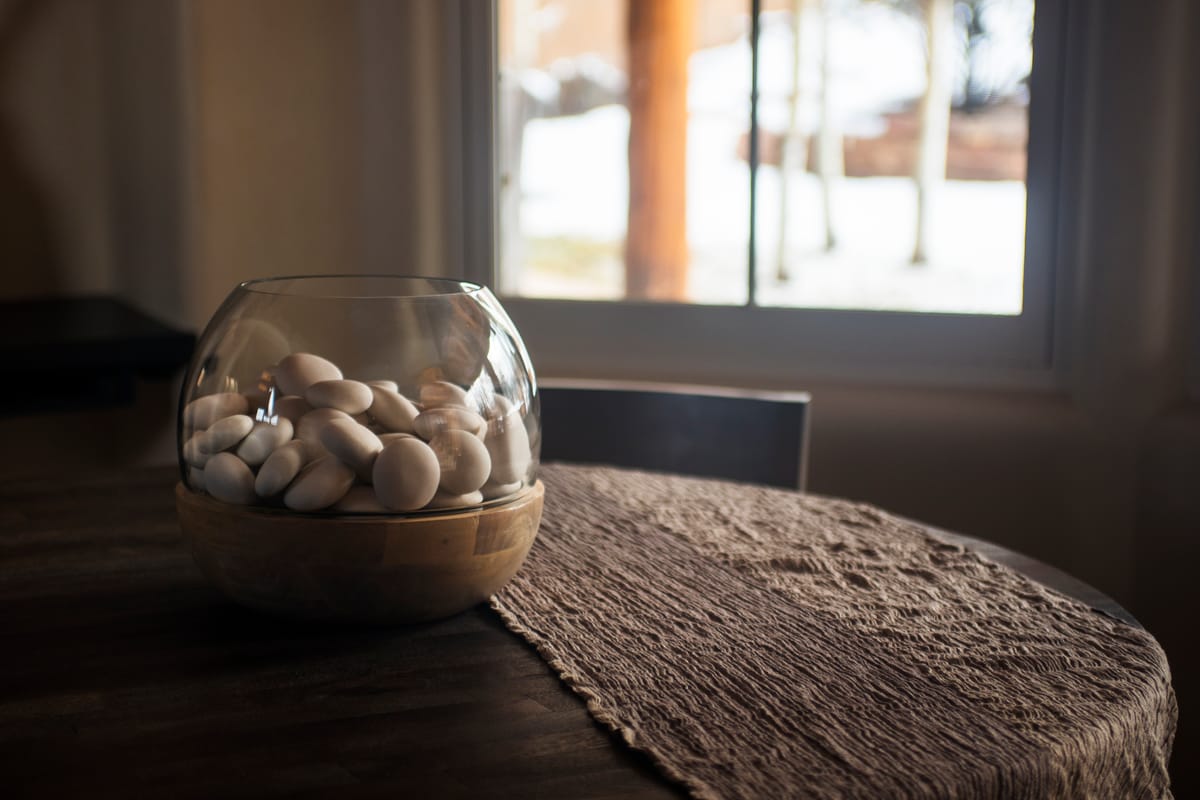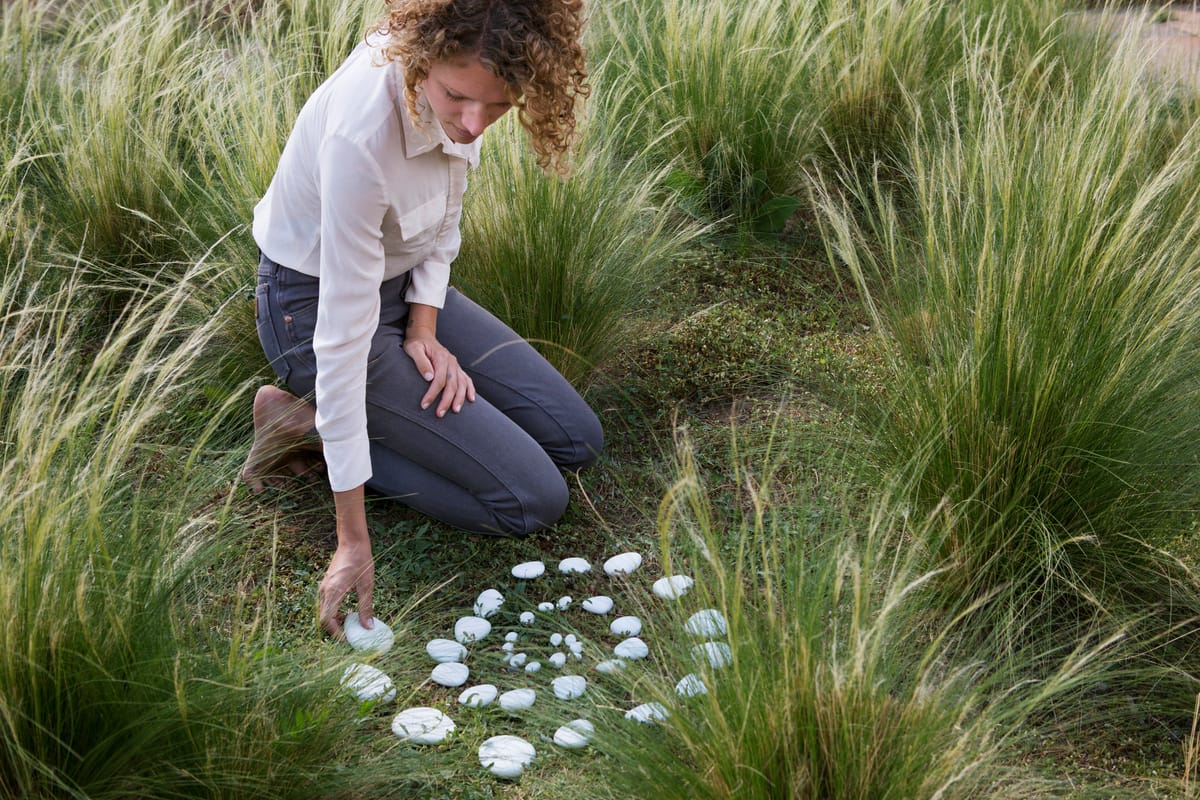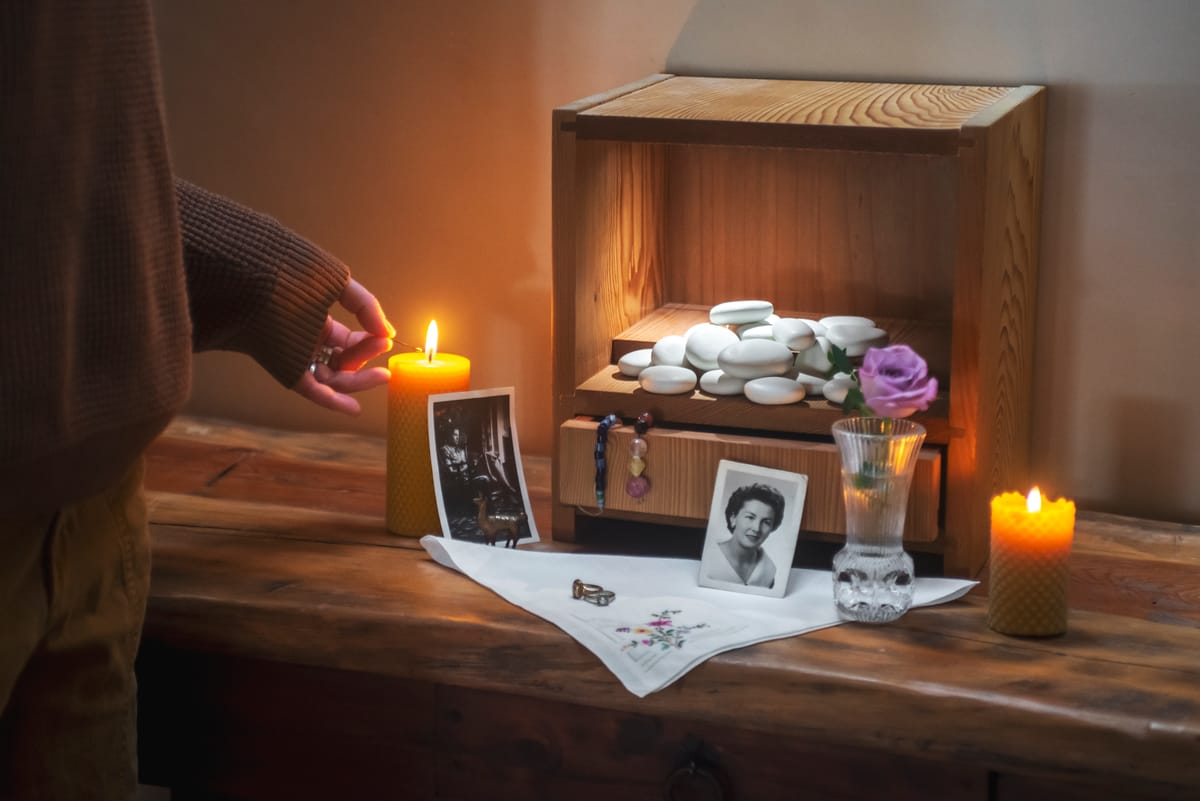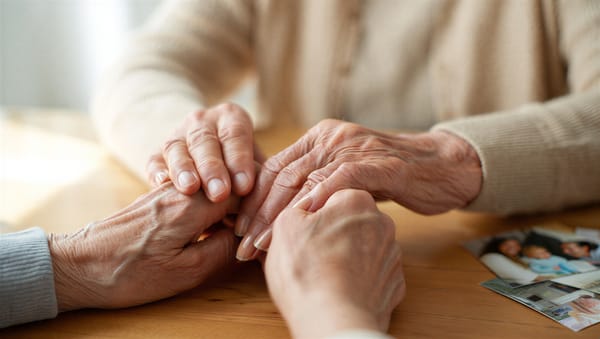Honoring Parents, Spouses, Children, and Siblings With Meaningful Tributes
Every relationship deserves a unique tribute. Learn how families honor parents, spouses, children, and siblings with memorials that reflect the love you shared.

Every relationship we cherish carries its own unique rhythm, shared history, and irreplaceable connection. When we lose someone precious, the memorial options by relationship become deeply personal decisions that honor not just who they were, but who they were to us. Whether you're honoring a parent who shaped your foundations, a spouse who shared your dreams, a child who filled your world with wonder, or a sibling who knew your story from the beginning, your memorial choice deserves to reflect the distinct love you shared.
The journey of memorializing someone you love is never one-size-fits-all. A parent's memorial might need to accommodate multiple adult children, each processing grief differently. A spouse's tribute requires balancing your personal need for connection with family members who also loved them. Memorializing a child demands the gentlest, most healing approach possible. Sibling memorials often navigate complex family dynamics while honoring shared childhood bonds.
Understanding that different relationships require different memorial approaches isn't just thoughtful—it's essential for creating something truly meaningful. The memorial that brings peace to one type of relationship might feel incomplete or overwhelming for another. This recognition helps guide families toward choices that honor both their loved one's memory and their own healing journey.
Throughout this article, you'll find testimonials from families who have chosen to preserve the remains ofhas distinct emotional needs, practical considerations, and family dynamics that influence the most meaningful approach to memorialization their loved ones. These represent authentic experiences from real customers, though names and identifying details have been modified to protect privacy during their grief journey.
We understand you're ready to take this meaningful step. You've moved through the initial waves of grief and now seek something tangible that reflects your unique bond. The following guidance will help you discover relationship-specific memorial options that can be held, shared, and cherished by those who matter most.
Reflections on love, loss, and the ways we carry them.
I once sat with a woman who had just lost her mother, and what stayed with me was not her tears, but her worry: “How do I make sure my sisters each feel close to her, in their own way?” That question captures the heart of memorial planning.
Our bonds are not interchangeable, and neither should the way we honor them be. The way we remember a parent, a spouse, a child, or a sibling carries the texture of the relationship itself.
What comforts one family member might feel incomplete to another. I’ve seen adult children want to divide their father’s memory so each household has something to hold, while a widow longs to keep her husband’s presence close in her bedroom. These are not competing needs; they are reflections of love expressed differently.
Solidified remains can bridge these differences with gentleness. Instead of one urn in one place, the vast majority of remains are transformed into smooth stones that can be shared among everyone who loved them. In one family, each grandchild received a stone from their grandmother, and they began carrying them in pockets to school recitals and sports games. For them, it wasn’t just about remembrance, as it was about carrying her encouragement forward.
In the end, memorials should not only speak to who our loved one was, but who they were to each of us.
Cathy Sanchez Babao
Parting Stone Grief Coach
Why Relationship Matters in Memorial Planning
The connection you shared shapes everything about how you want to remember and honor someone. Each relationship type has distinct emotional needs, practical considerations, and family dynamics that influence the most meaningful approach to memorialization.
Memorial Options for Different Family Relationships
Honoring Parents: Creating Legacy Connections for Adult Children
Losing a parent represents the end of your longest relationship and the loss of someone who witnessed your entire life story. As adult children, you're often coordinating memorial decisions with siblings while processing your own grief, creating both emotional and logistical complexities that require thoughtful navigation.
Parent memorial ideas often center on creating something that multiple family members can treasure, while acknowledging that each sibling's relationship with their parent was uniquely their own. The memorial should honor your parents' role as the family cornerstone while respecting individual grief processes and memories. Consider how your parent would want their memory to bring the family together rather than create division.
Solidified remains offer a significant solution for parent memorials because they create 40-80+ beautiful stones that can be shared among all children, grandchildren, and other family members. This memorial sharing approach allows each person to keep part of their parent close while ensuring no one feels excluded from this tangible connection. The stones can be held during difficult moments, displayed in homes, or even incorporated into family gatherings.
Practical guidance for parent memorials includes holding a family meeting to discuss everyone's needs and preferences before making decisions. Consider your parents' values, personality, and wishes if they expressed them. Some families find it meaningful to create a portion of stones for each household, while others prefer individual stones with a larger family collection for special occasions.
"When my dad came home in his stone form, we took a family trip with his stones to the black hills of South Dakota. He took me camping there a lot when I was a child and continued that tradition with my children. We let my son, who is 8, throw the first stone, and my daughter, who is 5, throw the second one. We also gave one stone to all of his closest people—all of his siblings, his mom, and 5 of his best friends." — Jacqueline
"I received my father's stones several weeks ago. The care taken to package and present his stones was so very touching. My dad was quite the outdoorsman and naturalist. He was also an avid traveler and explorer. Part of my decision to pursue the creation of the stones is so I can 'take' dad with me as I continue to travel and explore the US and world." — Becky
"Thank you for the amazing work you do through the parting stones. What a blessing to have these stones as a remembrance of our dad. May you be blessed in all of your future endeavors as you have touched & blessed our family." — Customer testimonial
Remember that honoring parents often involves creating something that can become a family legacy, passed down through generations. The memorial you choose today may comfort grandchildren who never met your parent, making the decision both profoundly personal and beautifully far-reaching as it continues your parent's story through time.

Memorializing Spouses: Balancing Partnership Memory with Family Sharing
The loss of a spouse touches the deepest part of your identity, changing not just your present but your entire vision of the future you planned together. Spouse memorial options must honor your unique partnership while considering children, extended family, and friends who also cherished your partner and want to share in their memory.
Your memorial decision carries the weight of preserving decades of shared experiences, inside jokes, quiet moments, and dreams fulfilled together. Yet it also needs to acknowledge that others loved your spouse too—your children need their own connection to their parents' memory, and family members seek ways to feel close to someone central to family gatherings and traditions.
@ohthatjenny If you would like more information on Parting Stone and the process please dont hesitate to ask. I feel so confident that Chris would love this way of keeping his memory alive. He is SO missed and loved still and always. #partingstone #partingstones #lifeafterloss #griefandloss @PartingStone
♬ original sound - Jenny
The sharing aspect becomes crucial with spouse memorials because solidified remains allow you to keep the most significant portion close while providing meaningful pieces for children and other family members. You might choose to stay several stones in your bedroom or favorite shared space while giving children stones to carry or display in their own homes, creating ongoing connections across households.
Timeline sensitivity matters deeply when it comes to spouse memorials. There's no rush to make this decision, and the right monument will still be meaningful whether you choose it six months or two years after your loss. Consider what would feel most comforting during your most challenging moments—something you can hold, something that brings the beauty of your relationship into daily life.
Communication with adult children about the memorial can strengthen family bonds during this difficult time. Many surviving spouses find that including children in the decision-making process helps everyone feel connected to the memory while respecting your primary relationship with your partner and your right to make the final choice.
"I carry one with me wherever I go. I also have stacks of stones throughout my home, which brings me a sense of peace, as if Steve is always here with me. This has been especially important for our only child, Erica, who was very close to her father. Without any siblings to share this loss, the stones have provided Erica with a way to hold onto that connection and cope with the weight of grief." — Cindy
"I wanted to thank you for your wonderful work in creating the beautiful stones that are my husband. He was born and raised in Sweden, so this summer I traveled to Sweden with many stones to be given to his brothers. Other stones went to family in California and Delaware. Most importantly, I carry a perfect stone with me, so I feel he is still a part of me." — Diane
"Thank you is not sufficient for the work on the parting stones for my husband Warren. His passing was sudden and a great shock. It is of great comfort to have him back home with me. I keep one stone with me wherever I go. Our daughter does the same. There are not enough words to express our appreciation." — Anita
Remembering Children: Healing-Centered Memorial Approaches for Parents
No loss compares to losing a child, and child memorial choices must center entirely on whatever brings the most comfort and healing to grieving parents. Every consideration—from timeline to design to sharing—should serve your emotional well-being and support your journey through this unthinkable grief.
The memorial you choose for your child should reflect the pure love and irreplaceable connection you shared. Whether your child lived for days, years, or decades, their impact on your life was profound and deserves something equally meaningful. Consider what aspects of your relationship bring the most comfort when you think of them—their laughter, their hugs, shared adventures, quiet bedtime moments.
Solidified remains provide a uniquely comforting option for child memorials because they create something beautiful you can hold whenever you need that physical connection. The stones feel substantial and warm, offering tangible comfort during the most challenging moments. Many parents find deep peace in being able to carry a stone with them or hold one while looking through photos and sharing memories.
The healing-centered approach means making decisions based entirely on what feels right for your family, without pressure from others' expectations or timelines. Some parents want to include siblings in age-appropriate ways, while others need time to process privately before sharing with them. Some choose to keep all the stones together, while others find comfort in placing them in different, meaningful locations.
Consider working with grief counselors or support groups as you navigate memorial decisions. Other parents who have walked this path can offer valuable insights about what brought them comfort; however, ultimately, your choice should reflect your unique relationship with your child and your personal journey through grief.
"Thank you for taking care of my FIL's ashes. The stones will allow my MIL and their grandkids to spread them at all their favorite locations including on our family vacation to WDW. They all get to keep a piece of him with them." — Family member
"Thank you for making the stones. I like how smooth they are. It helps me remember my grandma. Love Lauren" — Lauren
"His stones that we have at home are all over our house—my kids have some that they play with, like in tea parties and things like that. We love that we chose to turn him into something tangible that we can hold, his stones make the grieving process just a little less hard I think." — Jacqueline, about her children connecting with their grandfather
Celebrating Siblings: Navigating Complex Family Dynamics
Sibling relationships are marked by the complexity of shared childhood experiences, family dynamics, and individual connections that may have evolved significantly over the years. Sibling memorials must honor the unique bond you shared while navigating family structures that can include parents, other siblings, spouses, and children with their own grief processes.
The memorial approach for siblings often requires balancing your personal grief with family dynamics that may include parents who are also grieving deeply, other siblings processing their own loss, and extended family relationships. Your sibling relationship may have included shared secrets, childhood memories, adult friendship, or complicated dynamics that outsiders don't fully understand.
Consider how your sibling would want their memory to impact family relationships. Many siblings hope their memory brings family members closer together rather than creates tension. Family planning discussions can help ensure memorial decisions strengthen family bonds rather than complicate them, especially when parents are also grieving intensely.
Solidified remains work beautifully for sibling memorials because they allow for flexible sharing arrangements that respect the different needs of family members. You might keep stones for your immediate household while ensuring parents and other siblings also receive stones. This approach acknowledges that your sibling meant different things to different people while honoring your specific relationship.
Practical considerations include discussing the memorial with parents if they're living, coordinating with other siblings to avoid conflicts, and considering your sibling's own family if they have spouses or children. The goal is to create something that brings comfort to everyone who loved your sibling, while especially honoring the unique connection you shared.
"I received my brother, Chad, back home today. It is so fitting in that tonight is the first night of Hanukkah and he loved the holidays. I wasn't certain of what to do with my brother's ashes from his death four years ago and then my wife told me about Parting Stones. When I picked up the stones and felt it today, I sobbed and held the stone tight. It felt so beautiful and reminded me that although my brother had his addictions, he was my angel." — Customer testimonial
"Thank you so much for the beautiful stones made from my brother Jeff's ashes. We've been able to share them with friends and family—it's such a wonderful form for remembering him that each person can personalize as they wish. Mine will go into a Budweiser glass which was his drink of choice and with which we toast him!" — Karen
"I wanted to tell you how these stones helped my Brother and I say goodbye to my Dad and still give us something nice to hold in our hands. Nice work!" — Rick

How to Choose the Right Memorial for Your Relationship
Selecting the right memorial approach involves three key considerations that apply regardless of which relationship you're honoring. First, identify your primary emotional needs—do you need something to hold, something to visit, something to share, or something to display? Understanding your core need helps guide the decision toward options that will truly comfort you during challenging moments.
Second, consider your family dynamics and communication patterns. Memorial decisions work best when they strengthen family connections rather than create tension. This might involve family meetings, individual conversations, or simply being thoughtful about how your choice affects others who also loved your person. Open communication prevents misunderstandings and helps ensure everyone feels included in appropriate ways.
Third, respect your grief timeline and emotional readiness. The right memorial will be just as meaningful whether you choose it now or in six months. Some people find comfort in making decisions quickly, while others need extended time to process. There's no correct timeline, and rushing rarely leads to choices you'll treasure in the long term. Trust your instincts about when you feel ready to take this meaningful step toward creating a lasting connection with your loved one's memory.

Creating Lasting Connections Through Memorial Sharing
Different relationships truly do require different memorial approaches, and understanding this helps guide you toward choices that honor both your unique bond and your family's healing journey. Whether you're creating a legacy for adult children, balancing partnership with family sharing, focusing on healing after child loss, or navigating sibling family dynamics, the right memorial should reflect your specific needs and circumstances.
Solidified remains offer a uniquely flexible memorial solution because they can be held, shared, and cherished in ways that match your relationship's specific requirements. With 40-80+ stones created from your loved one's remains, you can design a sharing approach that honors your primary relationship while including others who also need that tangible connection to someone irreplaceable.
You're Not Alone in This Journey
Many families find that traditional ashes create more anxiety than comfort—whether it's difficulty with storage, challenges sharing among family members, or simply feeling uncomfortable with the form they're in. Over 10,000 families have found peace through Parting Stone's solidification process, which transforms ashes into smooth, natural stones that feel comforting to hold and easy to share.
When you're ready to explore options:
There's no timeline for grief, and there's no rush to make decisions. We're here to support you whenever you feel ready to take the next step.







